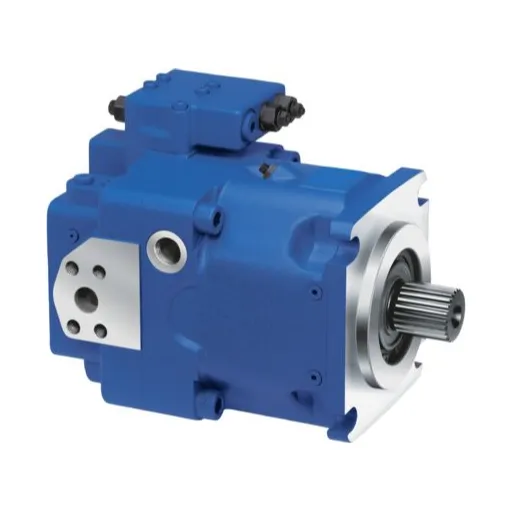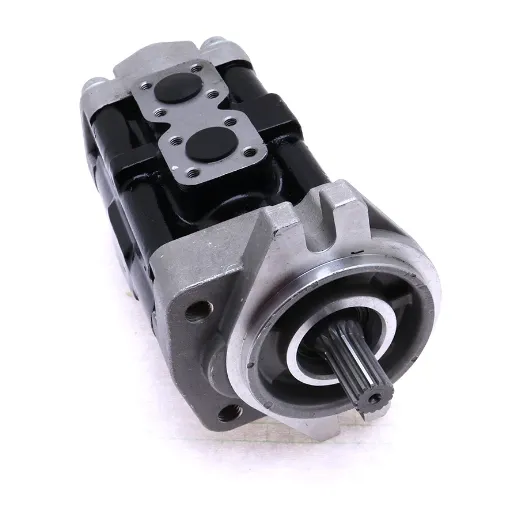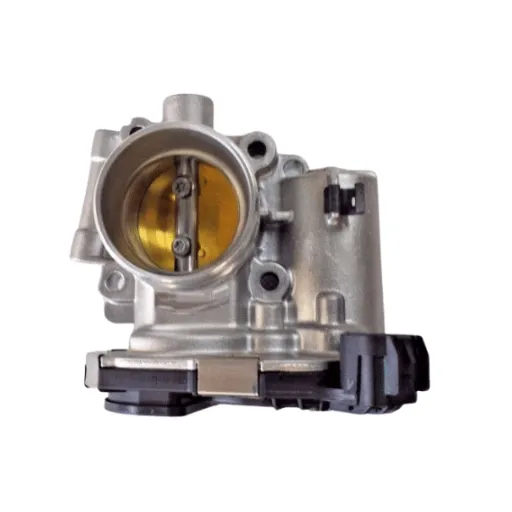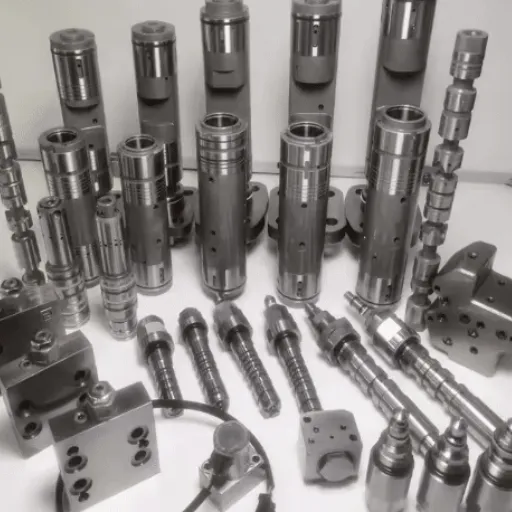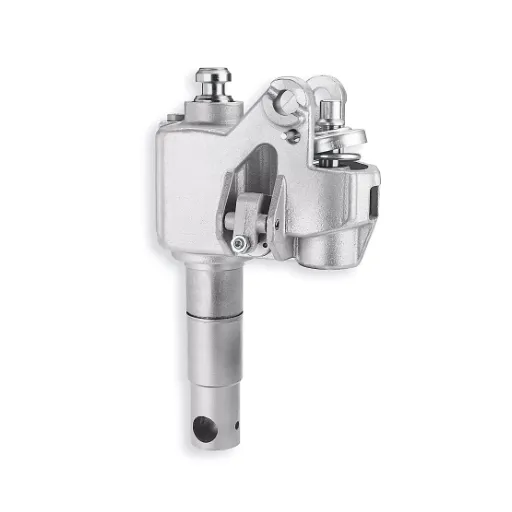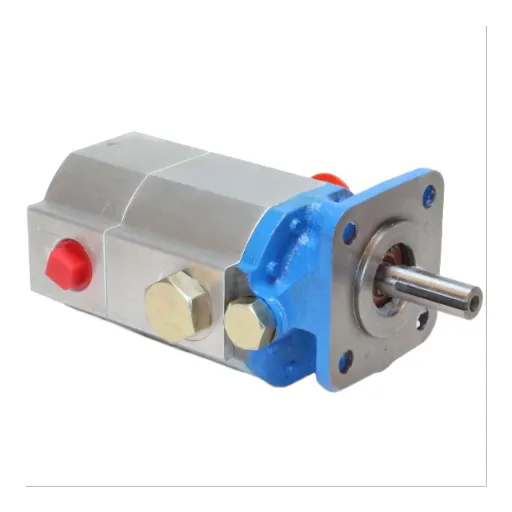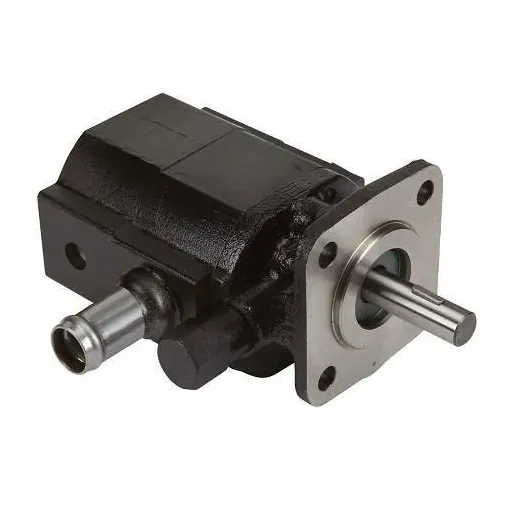Hydraulic systems guarantee all precision, efficiency, and power in our industrial world. And they are wired for efficiency with an axial piston pump at the heart intricate and multi-purpose part known for its reliability and performance. Focus is given here to Bosch Rexroth axial piston pump technology, which stands high for its engineering excellence and the adaptability of its applications across a varied spectrum. The knowledge imparted through this article about how axial piston pumps operate, their fundamental components, and what benefits they bring to modern machinery is enough for a professional engineer or a beginner in hydraulic systems. There are technical details and applications provided here to help you fully gear up for performance enhancement and professional decision-making in hydraulics.
Introduction to Bosch Rexroth Axial Piston Pumps
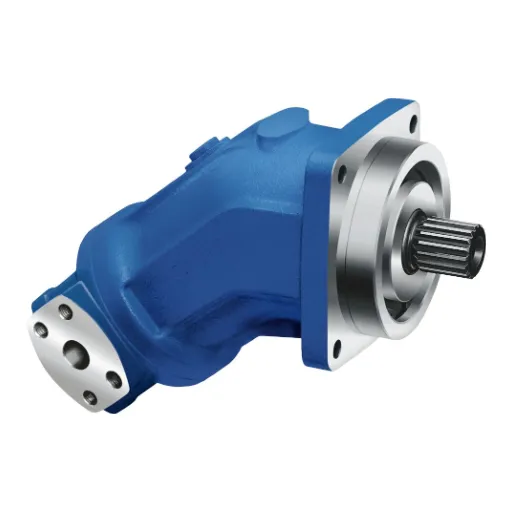
Overview of the Bosch Rexroth Brand
Bosch Rexroth has earned an international reputation for industrial and mobile hydraulics for its innovative and high-performance solutions in a plethora of applications. As a subsidiary of Bosch, the company synergizes decades of knowledge with a relentless pursuit of technological development, furnishing products that boast excellence, reliability, and efficiency. Bosch Rexroth stands next to companies as the hydraulic system of choice, spanning factory automation to mobile machinery.
The brand is especially famous for its axial piston pumps designed to work under tough working conditions, maintaining precision and longevity. In alignment with customer requirements, Bosch Rexroth develops hydraulic solutions that straddle the lines of advanced technology and ecologically efficient technology that promotes sustainable practices while bringing productivity to a higher level. In light of this, the products are technically designed for industries such as construction, agriculture, manufacturing, and energy generation.
Bosch Rexroth guarantees that the hydraulic systems are always wise, but also ensures that they are in demand, with research and development dedicated to their systems. The worldwide network of service and support goes a long way in ensuring accessibility and dependable assistance so the user can get the best performance with the design in the shortest possible time. The company combines creative design and mid-range engineering to maintain its lead in hydraulic technology.
What is an Axial Piston Pump?
An axial piston pump is a good, general sort of dividing system in hydraulic systems, converting mechanical energy into hydraulic energy. The pump utilizes several pistons set parallel to each other inside a cylindrical block. These pistons move axially with a reciprocating motion as the block rotates clockwise, thereby sucking fluid into the pump and forcing it out at very high pressures, performing the pumping action.
Key Characteristics:
- High efficiency
- High-pressure generation
- Compact dimensions
- Excellent control over fluid flow
- Variable displacement adaptations
Some of the defining characteristics of axial piston pumps include high efficiency, high pressure generation, and compact dimensions. This design offers very good control over fluid flow, which is why axial piston pumps are used where applications demand an actual steady and variable movement: construction machinery, industrial power machinery, aerospace systems, etc. Also, axial piston pumps work with almost any variety of fluid and under harsh operating conditions.
In axial piston pumps, there is one more factor that gives them variable displacement adaptations imaginable. This feature permits an application to dynamically adjust the pump displacement for its requirements, thereby saving power and accomplishing little waste. With sturdy materials and well-engineered design, an axial piston pump will withstand very long-term use with great reliability and will hence hold an important standing in the world of modern hydraulics.
Core Functionality of Axial Piston Pumps
This type of axial piston pump transmits energy from the mechanical to a hydraulic system through the motion of pistons in a cylinder block. The pistons are parallel to the drive shaft, and the linear motion causes fluid flow. The swashplate, being either angled or adjustable, determines the length of the stroke of the pistons and thus, the displacement of the pump. It is the theoretical efficiency and continuous operation of an axial piston pump at high pressure that make it so desirable in hydraulic systems.
One of the main factors of axial piston pumps is that they have the capacity to be variable displacement. By changing the swashplate angle, the output flow can be adjusted to suit the demand of the system at any given time. The effect enhances energy savings even further, minimizes the generation of heat, lessens wear, and, thus, is an excellent choice for loads requiring accurate control, such as heavy equipment or industrial automation.
Axial piston pumps are designed to accept a wide range of pressures, often above 4000 psi, while also taking different hydraulic fluids. They are suited for demanding environments for construction equipment, aerospace systems, and manufacturing operations. The reduced size, coupled with a high power-to-weight ratio, allows them to lend reliable service to exceptionally demanding requirements, thereby continuing with optimum performance and with negligible downtime.
Benefits of Using Bosch Rexroth Axial Piston Pumps
Optimal Performance in Industrial Applications
Bosch Rexroth Axial Piston Pumps are engineered for precise and efficient operation across a wide spectrum of industrial application settings. Their advanced design and technology assure that they satisfy the increasingly rigorous demands on industrial systems. Below are five key performance benefits that highlight why these pumps excel in industrial environments:
- High Efficiency: Keep energy loss minimal with volumetric efficiencies surpassing 95%, thus reducing the operating costs in conjunction with improving the entire system’s efficiency in manufacturing and production systems.
- Robustness and Long Service Life: Being made of wear-resistant materials such as specially treated alloys, the pumps carry forward their operation for more than 10,000 hours even in hard working conditions without any noticeable degradation in their performance.
- Small Size with High Power Density: These pumps realize power to less than 10 kW per kilogram, placing little space requirement and making for easy integration into mass industrial setups.
- Wide Operating Pressure Range: These pumps can generate pressures up to 500 bar and therefore find their usefulness in the heavy-load industries of forming metals and injection molding, where accuracy and reliability are required.
- Advanced Control Options: A built-in electronic control allows the pumping system to react to flow and pressure rate measurements made in real-time; thus, the responsiveness of automated production processes and consequently the output quality is improved.
In this way, Bosch Rexroth axial piston pumps embody all features necessary for excellent performance, custom-developed to meet very stringent industrial requirements.
Cost-Effectiveness and Efficiency
Bosch Rexroth axial piston pumps focus on achieving high cost-effectiveness without putting performance at stake. Keeping energy losses to a minimum through advanced hydraulic technology is what augments running costs over a period. Other design features are customizable, with internals arranged to minimize flow resistance, and great precision is kept during manufacture to avoid wear and tear, guaranteeing longer service life and lower maintenance costs.
Since the pumps also remain variable displacement and can be adjusted to vary output required by user demand, they serve to ensure maximum energy efficiencies and minimize power wastage during low-load operational states-which is critical for industries trying to conform to current sustainability targets and decrease their overall energy footprint.
While putting the Bosch Rexroth axial piston pumps on a comparative performance scale, through the independent evaluation of these pumps, it has been established that they can provide higher output and efficiency ratings for longer operational cycles. Hence, if industries wanted to have finely tuned hydraulic systems requiring dependable output and rugged durability, these would be the best value choices in the long run.
Reliability and Longevity
Reliability and longevity are guaranteed by painstaking engineering and manufacturing with utmost precision and the use of sturdy materials of construction in Bosch Rexroth axial piston pumps. They give utmost performance under harsh conditions and thus are the standards in hydraulic systems. Some factors that lend to their reliability and longevity are:
- Large Inventory of Materials: Made of high-strength alloys and corrosion materials, Bosch Rexroth pumps have the greatest durability ,even if placed in abrasive environments. This ensures that there is less wear and tear during long-term use.
- Sealing Technology of the Highest Order: It is noted for integrating state-of-the-art sealing systems that prevent leakage and guard against contamination, thus prolonging service life and reducing maintenance time.
- Lubrication Systems Optimized: The use of precise internal lubrication systems minimizes friction between moving parts, thus enhancing efficiency and prolonging the operating life of the pump.
- Thermal Stability: These pumps are made in a manner so as to retain performance integrity against wide ranges of operating temperature, thus precluding thermal stresses and early degradation of their components.
- Rigorous Testing and Quality Control: Under different conditions and for extended periods of time, every pump is tested for its performance to make sure it meets the most stringent quality requirements. This ensures that it will successfully operate under real-world conditions, even when subjected to heavy-duty operational cycles.
By considering the above points, Bosch Rexroth axial piston pumps offer unmatched reliability and long-term efficiency, thereby becoming a wise investment for any industrial application.
Maintenance Tips for Bosch Rexroth Axial Piston Pumps
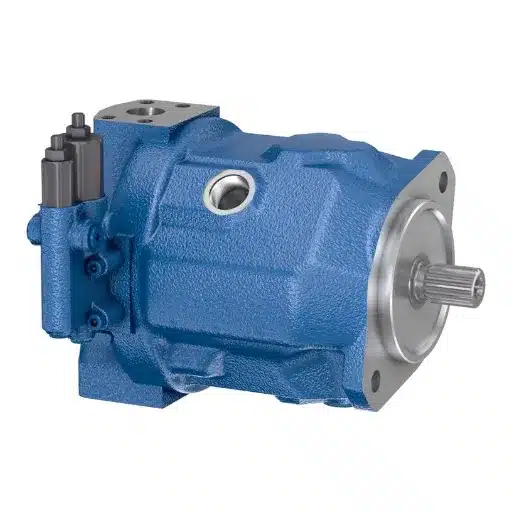
Regular Maintenance Practices
This comprehensive and well-structured maintenance schedule is critical for ensuring the highest quality of pumping life from Bosch Rexroth axial piston pumps. One should, therefore, entertain the following maintenance exercises during the working period. Periodic testing of hydraulic fluid quality must be performed to ensure the fluid has the correct viscosity and remains clean so contaminants do not early wear the components inside the pumps and may not even cause internal damage to the pump components. Filter replacement according to the interval specified will avoid debris accumulation in the hydraulic system.
Regularly check all seals and connections for wear, leaks, or loosening; if any are found, then secure or replace them to maintain system integrity. Thermal testing will allow you to monitor the temperature at which the pump operates and prevent the possibility of its components being degraded due to excessive heat during long periods of operation. The remaining aspect for consideration is maintaining cleanliness around the pump chassis and its environment to prevent any ingress of dirt.
Monitoring system pressure and flow rates against specifications offered by the manufacturer will provide you with insights into the performance of the pump. Deviations may mean component wear, cavitation, or another similar condition needing immediate attention. Using diagnostic tools like vibration analysis and fluid particle counters will provide more data for predictive maintenance and will reduce unplanned downtime. Thoroughly observed, these will enhance operational efficiency and increase the lifespan of your Bosch Rexroth axial piston pump.
Extending the Lifespan of Your Pump
I establish dependable maintenance plans incorporating preventative and predictive schedules for the longevity of the Bosch Rexroth variable axial piston pump. The wear and tear of components must necessarily be detected early; thus, I check in regular intervals with the seals, bearing, and pistons. One very important aspect I never overlook is to keep the hydraulic fluid inside the pump clean and to maintain its viscosity within the acceptable limits laid down by the manufacturer. Many system inefficiencies and early component damage occur because of contaminated or bad fluid. Hence, I always insist on filtration and fluid analysis at regular intervals.
⚠️ Critical Maintenance Points:
- Monitor system parameters (pressure, flow rate, temperature)
- Use diagnostic equipment for early problem detection
- Never operate beyond design limits
- Train personnel on warning sign recognition
- Document all maintenance activities
The other vital practice I hold dear is keeping a close eye on system parameters such as pressure, flow rate, and temperature. Usually, a deviation from optimal operational conditions signals an issue that may have an adverse effect on the pump’s performance. Therefore, I use modern diagnostic equipment such as vibration analyzers or heat sensors to detect and mitigate any potential problems before they snowball. I also make sure to never operate the pump beyond its design limits, avoiding over-pressurization or heavy loads, which place excessive stress on it and reduce the pump’s life significantly.
Lastly, I remain committed to training personnel to recognize and react to the important warning signs, for example, unusual sounds or erratic performances. Consistent maintenance practices should be well documented, and I use manufacturer instructions to conform the maintenance process to proper standards. Through this thorough procedure of analysis and data gathering, the efficiency of the pump is maximized, along with the minimized disruption time due to unplanned events. When maintained with care and vigilance, maintaining a Bosch Rexroth axial piston pump has proved a foreseeable and controlled facet of operational excellence.
Comparative Analysis of Axial Piston Pumps
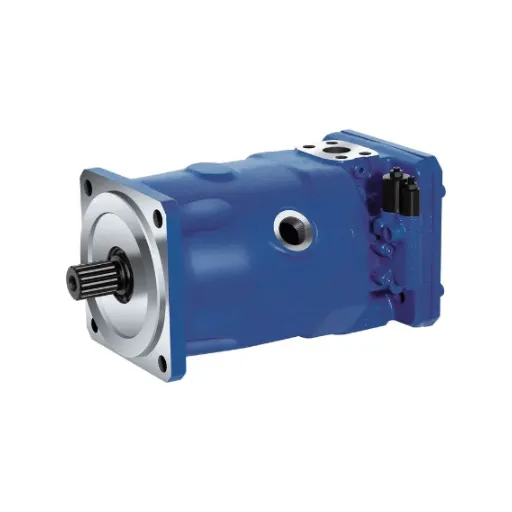
Comparison with Other Hydraulic Pumps
Analysis of Bosch Rexroth Axial Piston Pumps is conducted vis-à-vis radial piston pumps, gear pumps, vane pumps, and other axial piston pumps.
| Aspect | Axial Piston | Radial Piston | Gear Pump | Vane Pump |
|---|---|---|---|---|
| Pressure Level | High (350-450 bar) | Very High (700+ bar) | Medium (200-300 bar) | Low-Medium (150-250 bar) |
| Performance | High | High | Moderate | Moderate |
| Dimensions | Compact | Larger | Compact | Compact |
| Longevity | High | Very High | Moderate | Moderate |
| Flow Precision | Accurate | Accurate | Fixed | Adjustable |
| Usage | Mobile, Industrial | High-pressure systems | General use | Low-pressure systems |
| Expense | High | Very High | Low | Moderate |
Competitive Advantages of Bosch Rexroth Axial Piston Pumps
Bosch Rexroth axial piston pumps offer many competitive advantages, standing alone as an industry-first hydraulic solution. Designed for high-pressure operation, these pumps assure higher performance due to their advanced design features, such as optimized port plates, rugged bearings, and precision-machined components. The swashplate technology mechanism increases their efficiency with the ability to offer precision flow control, along with their adaptability to variable flow demand under various operational conditions.
🏆 Key Competitive Advantages:
- Energy Efficiency: Minimized internal leakage and power loss
- Variable Displacement Options: Adaptable to versatile applications
- Superior Materials: Advanced surface treatment technologies
- Smart Technology Integration: IoT-compatible sensor technology
- Customization Capability: Industry-specific adaptations
One of the prime advantages is energy efficiency, achieved by minimizing internal leakage and power loss. This means that operating costs get reduced significantly during the pump’s life. Furthermore, these pumps provide variable displacement options to suit versatile applications, thereby strengthening the overall responsiveness of hydraulic systems. Because superior-grade materials protect them, combined with modern surface treatment technologies, their surface treatment technology increases the lifespan of components even under prolonged and high-stress conditions.
This smart technology integration of on-board diagnostics and IoT-compatible sensor technology rightly places Bosch Rexroth pumps among the coveted Industry 4.0 applications. While the sensors aid in tracking performance parameters like pressure, temperature, and flow rates in real-time, they take predictive maintenance to the next level, reducing unscheduled downtime and extending the life span of the equipment.
Moreover, the ability to customize Bosch Rexroth axial piston pumps to accommodate industry-specific needs, from manufacturing and construction to offshore energy projects, rounds off their character as a versatile and trusted hydraulic solution. Supported by an extensive network and a culture of innovation, these pumps can very well be argued to remain ahead in the hydraulic technology race.
Applications of Bosch Rexroth Axial Piston Pumps Across Various Industries
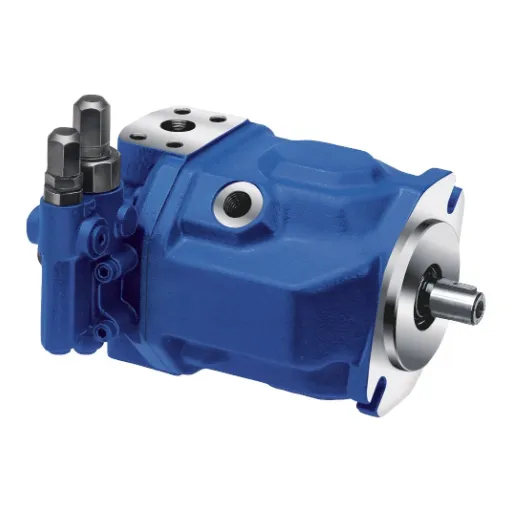
Manufacturing and Industrial Use
Bosch Rexroth axial piston pumps form a vital hub in the distribution of hydraulic power with precision in any manufacturing and industrial setup. Owing to their latest and advanced design coupled with sturdy construction, they find usage where performance is given utmost priority and alongside high reliability and efficiency. Let us now explore the five applications of this domain ventured into by the product:
- Press Machinery: Hydraulic press machines rely upon axial piston pumps and hydraulic systems to maintain a constant pressure with a smooth flow of hydraulic power, necessary for metal forming, stamping, molding, and other functions. Therefore, possessing a high force capability with precise control is paramount and aids directly in improving product efficiency and quality.
- Injection Molding Systems: Used in making plastics, these pumps are applied to hydraulic systems in injection molding machines to foster precise control so that optimum material flow, fast cycle times, and least energy consumption are ensured.
- Assembly Line Automation: Assembly lines for automotive and electronics components depend on such pumps, which supply power to robotic arms and linear actuators. During assembly operations, the ability of the pumps to cope with dynamic pressure changes helps in making the process smooth and uninterrupted.
- Hydraulic Press Brakes: Bosch Rexroth pumps provide reliable hydraulic forces for bending sheet metals under complex angles and bend profiles with great accuracy.
- Material Handling Equipment: Considering axial piston pumps in hydraulic forklifts, conveyors, and cranes, they guarantee smooth lifting, precise movements, and continuous heavy load operations in industrial warehouses.
These applications speak volumes regarding the Bosch Rexroth axial piston pumps working as vital parts in manufacturing and industrial sectors for better productivity and less downtime.
Agricultural Applications
In modern-day agriculture, Bosch Rexroth axial piston pumps stand distinguished, ensuring that reliability, efficiency, precision, and intense requirements imposed by the industry are upheld. These pumps build on the performance of different agricultural applications, engaging in heavy work and not losing their function through the process. They are, therefore, enlisted in a long array of five important applications:
- Tractor Hydraulic Systems: Axial piston pumps form the heart of tractor hydraulics, where hydraulic pressure is the power that drives implements such as plowing, sowing, and cultivation with ease and precision.
- Harvesters and Combines: The pumps facilitate key operations in harvesters and combines in reel control and header lift mechanisms, allowing for accurate harvesting and steady throughput.
- Spraying Equipment: Pesticides are applied through agricultural sprayers, and such pumps have to provide a constant flow and a variable flow, depending on the desired intensity of spraying, to apply fertilizers and pesticides perfectly, allowing the maximization of crop yields.
- Seed Drills and Planters: Precision is required in seed drills and planters. The pumps control the hydraulic systems for seed placement with uniform depth and spacing for productivity maximization.
- Irrigation Systems: For large-scale irrigation systems, axial piston pumps are used to provide high-pressure water flows for efficient irrigation and proper distribution over the vast agricultural fields.
Such diverse applications prove the axial piston pumps of Bosch Rexroth to be the backbone of agricultural activities, essentially contributing to higher efficiency, reduced fuel consumption, and more reliability for farmers all over the world.
Construction and Heavy Machinery
Bosch Rexroth axial piston pumps are considered a must-have in the construction and heavy machinery industries for performance and reliability in an aggressive environment. These pumps would have to be very efficient, precise, and durable to give the best performance over a wide range of applications. Here are five categories of typical applications of Bosch Rexroth axial piston pumps in the construction and heavy machinery trade:
- Excavators: Axial piston pumps are essential for hydraulic systems in excavators, enabling smooth and precise movements of the boom, arm, and bucket. They provide a steady hydraulic flow that enables preparation, such as excavating, lifting, and grading, to be carried out more efficiently.
- Cranes: These pumps are the heart of the lifting mechanisms of cranes, hydraulically. By using high-pressure fluid, these cranes lift and place heavy loads with precision and thus have greatly improved safety and efficiency in operations.
- Wheel Loaders: These pumps perform hydraulic services for wheel loaders: functions such as bucket control, lifting arm, and steering. High efficiency reduces energy consumption and improves the performance capacity of these machines.
- Bulldozers: The axial piston pump-enabled hydraulic system adjusts the blade smoothly while grading, pushing, and leveling heavy materials. Designed for longevity and robust service under high pressures, the pumps are a must for such heavy-duty operations.
- Concrete Pumps: Such pumps, by definition, provide the high-pressure hydraulic flow needed to pump concrete through pipelines within a concrete pumping system. The precision and reliability of these pumps contribute to maintaining flow rates even on complex construction jobs.
The integration of Bosch Rexroth axial piston pump technology increases machinery efficiency, reduces downtime, and saves operational costs from the construction site around the globe. All such factors make an essential element in any application demanding high-pressure hydraulic systems in tough conditions.
Frequently Asked Questions (FAQ)
Q: What Is a Bosch Rexroth Axial Piston Pump?
A: The Bosch Rexroth axial piston pump is a hydraulic pump for hydrostatic drives that is known for the efficient conversion of mechanical energy into hydraulic energy. Such pumps find use in all sorts of hydraulic applications, particularly for mobile and industrial purposes.
Q: What are the benefits of a variable displacement pump?
A: Variable displacement pumps, such as those in the A10VSO series, hold major advantages of increased efficiency and reliability. A variable displacement pump can alter flows to match the requirement at any particular operating point, thus saving energy and therefore saving running costs from hydraulic systems.
Q: How does the swash plate design contribute to the performance of the pump?
A: The swash plate design makes for smooth operation of the Bosch Rexroth piston pumps. This carries out an angle control on the pistons inside the cylinder, which results in variable displacement that lets the system behave perfectly in terms of performance and efficiency, both in the mobile and industrial application fields.
Q: What is the maximum pressure rating for Bosch Rexroth axial piston pumps?
A: Depending on the medium pressure requirements, the Bosch Rexroth axial piston pumps generally work up to 350 bar in high-demand applications requiring a tough hydraulic performance.
Q: Can the Bosch Rexroth axial piston pump be used in open circuit systems?
A: Sure, the Bosch Rexroth axial piston pump is for use in open circuit systems. Usually, the open circuit system gives the best design possibilities for fluid power management, thus suitable for different hydraulic components and applications.
Q: In what different ways might the construction of the pump affect its service life?
A: Robustly built Bosch Rexroth axial piston pumps enjoy long service lives. The innovation in design coupled with the use of high-quality materials reduces wear on the pumps, so that such are able to perform their operations well even in the most trying circumstances in hydraulic applications.
Q: What is the function of the drain ports in these pumps?
A: Drain ports in Bosch Rexroth axial piston pumps allow the evacuation of the excess fluid and avoid pressure buildup within the system. This method increases the reliability and effectiveness of the pump during its operation.
Q: How do I install a Bosch Rexroth axial piston pump properly?
A: Installation should technically follow all the points set forth by the manufacturer, including alignment of the pump and connection to the fluid reservoir. Optimal working and life of the pump require that the direction of rotation be observed and that the suction lines remain clear.
Q: What kind of applications are the Bosch Rexroth axial piston pumps used for?
A: For applications using axial piston pumps of Bosch Rexroth, industrial applications in manufacturing jobs or mobile applications in construction equipment, they are flexible enough to be used in any such application. Because a wide variety of hydraulic systems can be subjected to varying conditions, the pump is rated for any of those.
Ready to Optimize Your Hydraulic Systems?
Discover how Bosch Rexroth axial piston pumps can enhance your industrial operations with unmatched reliability, efficiency, and performance.



